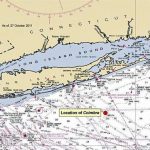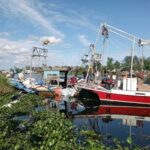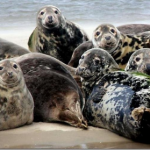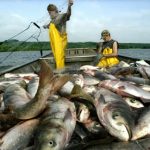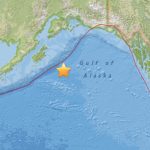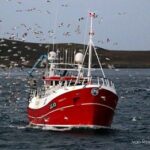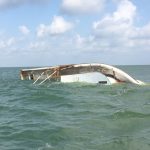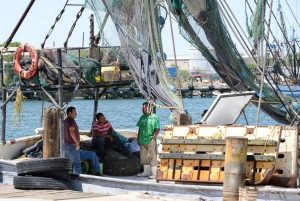Daily Archives: March 28, 2019
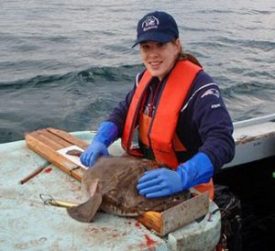
At-Sea Monitoring 2019 Coverage Levels and Reimbursement for Groundfish Sector Fishery
NOAA Fisheries announces that for fishing year 2019 the total target at-sea monitoring coverage level is 31 percent of all groundfish sector trips. Additionally, for fishing year 2019, NOAA Fisheries will continue to reimburse 100 percent of industry’s at-sea monitoring costs. In 2018 and 2019, we received Congressional appropriations that have been and will continue to be used to reimburse sectors for 100 percent of their ASM costs. This reimbursement will continue at 100 percent for the 2019 fishing year. As in past years, the Atlantic States Marine Fisheries Commission will administer the reimbursement. For more information, >click to read<15:44
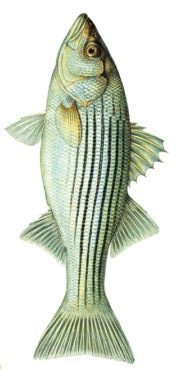
New measures to protect striped bass being eyed for the fall.
Fishermen were given the floor at a meeting of the civilian Marine Resources Advisory Council in Setauket to suggest and opine on measures to limit so-called discard mortality — essentially the unintended killing of fish that are too small or over the limit of the one fish at 28 inches that anglers are allowed to keep in a season that starts April 15 through December 15. Suggestions included everything from banning surfcasting and commercial fishing nets to requiring hooks that limit damage to fish. The measures were alternately greeted by heckles or applause from the standing-room-only crowd of chiefly fishing boat captains and anglers from across Long Island. “The whole problem is dead discards from the recreational fishery,” said commercial fisherman John German of Brookhaven, who criticized the “inhumane” practice of catching fish with barbed hooks. “You eliminate that you’d be in fine shape.” >click to read<
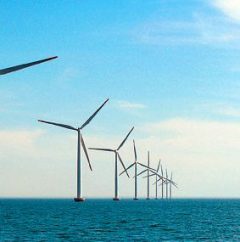
Coast Guard study of travel routes underway
The Coast Guard has begun a study of vessel traffic in and around the seven offshore energy lease areas south of the Islands to determine if any new vessel travel routes are necessary to improve navigational safety, according to Tuesday’s notice in the Federal Register.,,, “The study’s future results will provide important information for orderly development of the New England offshore wind area in a way that ensures safe navigation for all mariners.”,,, A vessel transit layout announced in September was from a Massachusetts state government-organized fisheries working group on offshore wind, with one east-west route, one north-south route and one diagonal route. But in early December, Rhode Island commercial fishermen said they needed wider corridors, in the range of 4-miles wide, to safely maneuver their vessels. >click to read<13:11
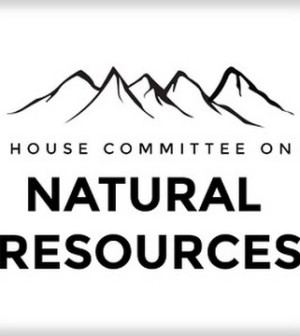
Facts and Data Prevail at House Hearing on Oceans and Climate Change
The U.S. House of Representatives’ Natural Resources Subcommittee on Water, Oceans, and Wildlife held a hearing on ocean health and climate change, moderated by Subcommittee Chair Jared Huffman (D-CA) and Ranking Member Tom McClintock (R-CA). Among the witnesses called by the majority were Carol Browner, administrator of the U.S. Environmental Protection Agency during the Clinton administration, and Beth Casoni, executive director of the Massachusetts Lobstermen’s Association. Wind Farm Dangers, Lobster Controversy, Claims of Rising Sea Level, Hurricane Link Debated, >click to read<11:45
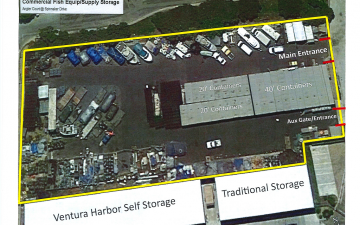
STORAGE WARS | Ventura Harbor fishermen concerned long-time storage facility will shutter while they’re away
As squid fishermen and lobster trappers prepare for the next phase in their annual relocation from Ventura to northern waters in search of seasonal fish, the fate of a long-time storage location is in the air, leaving captains to wonder if they’ll have a place to store supplies until their return. The facility, known as the Ventura Harbor Commercial Fisherman’s Storage, sits on land owned by Ventura Harbor Storage, LLC., which has a ground lease with the Ventura Port District. The District holds a sub-lease with Harbor Boat & Storage, which acts as landlord and has managed the property for 25 years. >click to read<11:09
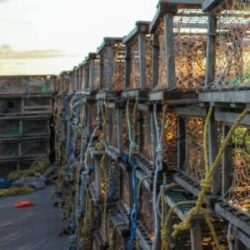
Experts say Canada-China spat could sink seafood exports
Atlantic Canadian seafood exports could be the next target in growing trade tensions between Canada and China, something experts say would deal a huge blow to the industry. China, a major market for Canadian canola, is no longer importing the product, citing contamination concerns, something producers say is unwarranted. >click to read<10:10


































